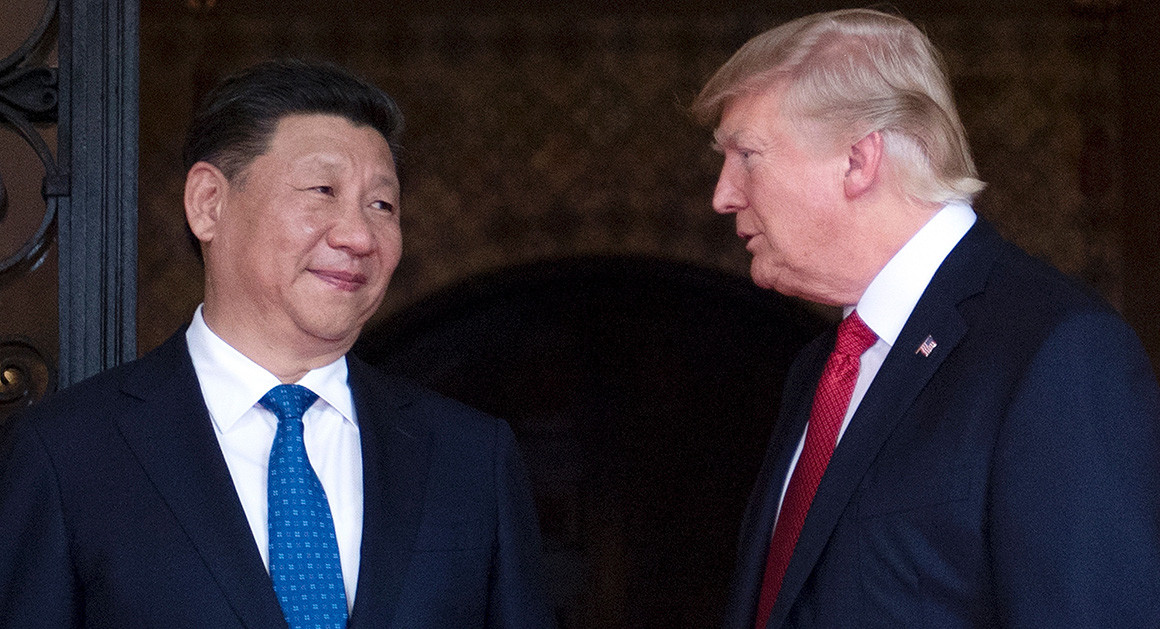
Washington Post writes that the Trump administration is slowly but surely coming around to a more hawkish, traditional Republican stance on China. Several signs of the shift will be evident, if not obvious, during the president's trip to Asia...After months of what officials and Asia experts saw as a somewhat disjointed and contradictory approach to Asia's rising power, officials say the administration is coalescing around a strategy that will attempt to define the Indo-Pacific chessboard on America's terms and respond to the threat that China's activities pose to the United States and its regional allies. The shift is the result of the increasing influence of China hawks inside the administration, officials and experts close to the Trump team say..."We're saying our interests are the same and immutable all the way from Japan to the Indian Ocean and being much more explicit about the challenge that China poses," the White House official said. Trump doesn't want any friction with Chinese President Xi Jinping during his Beijing stop, officials said, so don't expect him to challenge Xi directly on human rights or North Korea. But in speeches in other countries, Trump will call out China's aggression in the South China Sea, its predatory trade practices, and America's commitment to an open and free, rules-based order in the region, officials said.
Financial Times reports that expectations are growing in the run-up to global climate talks in Germany this week that China is preparing to launch a national carbon trading scheme. Xi Jinping, China's leader, said two years ago that Beijing would launch an emissions trading system in 2017 that would almost certainly become the largest of its type, eclipsing that of the EU. With time running out, government officials, industry experts and researchers at Chinese think-tanks say Beijing could announce the scheme at the two-week Bonn climate change meeting that opens on Monday. The expectations come as Beijing signals its readiness to fill the gap in global climate leadership following President Donald Trump's decision to withdraw the US from the Paris climate change deal. "We are expecting the launch of national ETS in conjunction with the Bonn climate conference," said Li Shuo, senior campaigner for Greenpeace East Asia, referring to an emissions trading system.
New York Times writes that President Trump has put a hard-line trade agenda at the center of his 12-day trip to Asia, which begins here on Sunday. Yet Mr. Trump is leaving his two most senior economic advisers back home, as well as the White House economist whose anti-China views inform much of Mr. Trump's thinking on the subject. He is also not taking his daughter Ivanka, who accompanied him to a summit meeting in Germany in July and raised eyebrows after she took his empty seat during a session with other world leaders. Her husband, Jared Kushner, a senior adviser who once laid claim to the China portfolio, will return to Washington after the president's stop in Beijing. The staffing of any major presidential trip is an exercise in internal politics — sometimes byzantine — as the White House parcels out coveted seats on Air Force One. But the Trump administration's staffing of this trip is drawing particular scrutiny from those seeking clues about who's up or down, and what message the president is trying to send to allies and adversaries. While the White House has talked about pressing China and other Asian countries on trade, it is not asking the Chinese for any major steps during this trip. Administration officials said the White House wanted to avoid accepting incremental measures when it is seeking a more wholesale change in the trade relationship.
- 2017-11-03 China’s soft power comes with a very hard edge
- 2017-11-02 Facebook, Take Note: In China’s ‘New Era,’ the Communist Party Comes First
- 2017-11-01 South Korea and China move to normalize relations after THAAD dispute
- 2017-10-31 Chinese ambassador responds to Trump’s trade complaints: ‘Look in the mirror’
- 2017-10-30 Chinese stocks are selling off after a week of steady trade during China's Party Congress
- 2017-10-29 China angered over US aluminum foil anti-dumping duties
- 2017-10-27 China's graft tsar draws remarkable political career to close
- 2017-10-26 China is the largest market for robots in the world right now, ABB CEO says
- 2017-10-25 These Seven Men Now Run China
- 2017-10-24 Trump to press China on North Korea, trade on Beijing visit
- Financial Times China launches 'magical' island-building ship on eve of Trump visit
- Bloomberg Leaving TPP Was 'Strategic Blunder,' Says Former US Trade Rep
- The Hill Bolton: US 'may have to act on its own' against NK if China doesn't step in
- Bloomberg How China and Environmentalists Became Unlikely Bedfellows
- Financial Times Manchester to China flights give big boost to UK's north
- Reuters China may grasp climate leadership at UN talks with Trump pulling out
- Bloomberg South Koreans Hope for Revival at China's Biggest Trade Fair
- Reuters China to expand corruption supervision pilot scheme nationwide: Xinhua
- www.bbc.com China online shopping: Dishonest websites face fines
- CNN Trump arrives in Japan, first in five-country Asian tour
- Bloomberg Weakened Trump Looks to the 'King of China' to Give Him a Boost
- Financial Times Does China's new policy regime threaten the global upswing?
- Wall Street Journal Decoding Trump's China Trade Strategy
- www.politico.com 7 Dos and Don'ts for Trump's China Trip
- Fox News Trump should confront China on North Korean nukes during his Asia trip
- Reuters Riding high, Xi looks to soothe Trump as US pressures China
